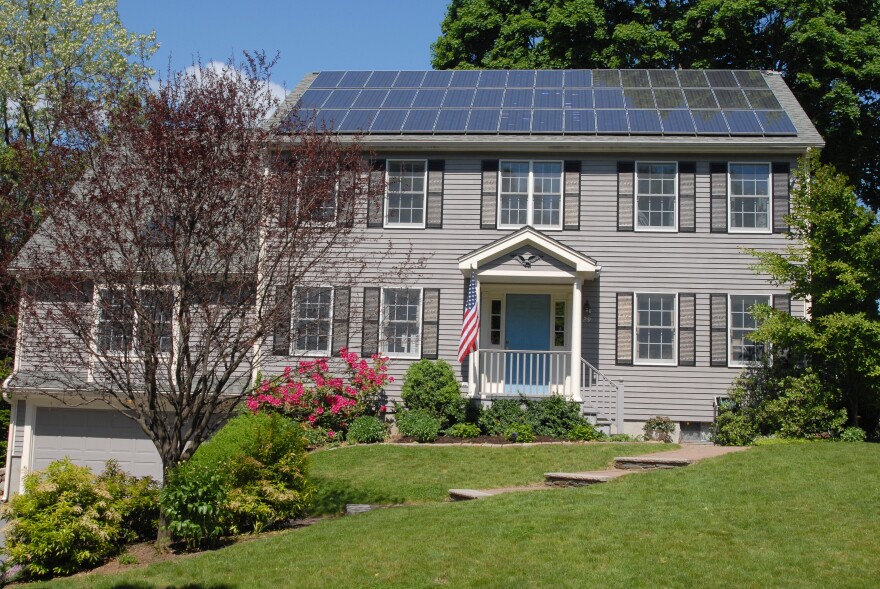A Republican state senator has introduced net metering legislation that would require state regulators to set rates for the solar power that customers feed back into the electricity grid.
The measure would likely reduce the rate residential solar customers receive for providing excess power to the grid.
Utilities backing the measure say it ensures costs are kept low for all customers, while opponents, including the state’s burgeoning solar industry, say it would dramatically slow the adoption of solar in the state.
State Sen. Brandon Smith introduced Senate Bill 100 on Monday after weeks of speculation. The bill would give authority to Kentucky's Public Service Commission to set rates for residential solar customers.
Smith did not immediately return a call for comment. This is at least the third consecutive year Republicans have pushed similar legislation to revise net metering in the state.
The bill is similar to last year’s Senate substitute of House Bill 227 with some minor changes. It would raise the cap on residential solar customers affected by the legislation from 30 to 45 kilowatts and would grandfather in customers who purchase residential solar before the bill takes effect.
Existing properties with residential solar would continue to receive rates under the current law for 25 years, regardless of if the property is sold.
Right now, the law requires electric utilities to give residential solar customers credit for the excess power they feed back into the grid. Those credits can be used on future power bills.
Both utilities and the state’s solar industry say the new legislation would reduce the rate that residential solar customers receive for the excess power they generate.
Under the current legislation, residential solar customers could see a 70-percent reduction in rates credited for the energy they feed back into the grid, said Matt Partymiller, president of the Kentucky Solar Industries Association.
“People that currently own solar and people that are considering solar need to understand that this bill will vastly change the way they will be credited for any solar generation,” Partymiller said.
Louisville Gas and Electric Spokeswoman Chris Whelan said utilities pay an unfair premium for residential-generated solar. As a result, all customers are paying to subsidize residential solar customers, she said.
In an interview, Whelan said she did not know offhand how much other customers pay for the power generated by residential solar. She said “it’s not an issue” now but will become one as the number of residential solar customers continue.
“It is the future we are planning for,” Whelan said. “This is a fair approach, it is a commonsense approach. It protects the folks that are current net-metering customers for 25 years.”
Louisville Gas and Electric and Kentucky Utilities spent more than $162,000 lobbying state officials in 2018, making it among the top spenders on lobbying last year, according to the Kentucky Legislative Ethics Commission. Utilities as whole spent nearly $500,000 lobbying for various issues.
Others backing net-metering reform include the conservative political advocacy group Americans for Prosperity, according to its website.


